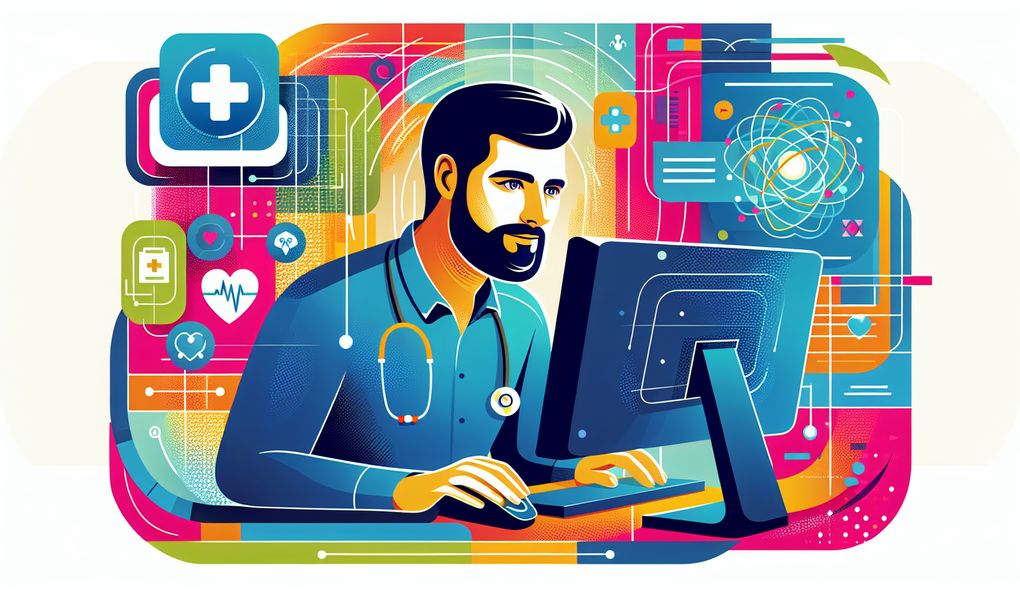How do you prioritize tasks in a healthcare IT environment with multiple competing priorities?
JUNIOR LEVEL

Sample answer to the question:
In a healthcare IT environment with multiple competing priorities, I prioritize tasks by assessing the urgency and impact of each task. I start by identifying critical tasks that directly impact patient care and patient data security. These tasks take priority to ensure the smooth operation of healthcare systems. Next, I consider tasks that contribute to the overall efficiency and productivity of medical staff, such as system upgrades or training. I also take into account any regulatory or compliance requirements, like HIPAA, to prioritize tasks that ensure legal and ethical standards are met. Communication is key in this process, so I collaborate with stakeholders to understand their needs and expectations. By evaluating the urgency, impact, and alignment with organizational goals, I effectively prioritize tasks to meet the needs of the healthcare IT environment.
Here is a more solid answer:
In a healthcare IT environment with multiple competing priorities, my approach to task prioritization involves a systematic evaluation process. First, I identify critical tasks that directly impact patient care and data security, such as resolving system failures or addressing security breaches. These tasks take immediate priority to ensure the uninterrupted delivery of healthcare services. Next, I consider tasks that contribute to the overall efficiency and productivity, taking into account the needs and expectations of medical staff and stakeholders. This includes system updates, training sessions, and implementing new technologies. Additionally, I prioritize tasks that align with regulatory requirements, such as HIPAA, to maintain legal and ethical standards. Communication plays a crucial role in this process, as I regularly collaborate with all relevant stakeholders to gather insights and expectations. By factoring in the urgency, impact, alignment with organizational goals, and input from stakeholders, I effectively prioritize tasks in the healthcare IT environment.
Why is this a more solid answer?
The solid answer provides a more comprehensive approach to task prioritization in a healthcare IT environment. It includes specific details and examples, demonstrating the candidate's problem-solving and critical thinking capabilities. The answer also addresses the candidate's basic understanding of healthcare systems and terminology, showcasing their knowledge and ability to apply it in task prioritization. However, the answer could still be improved by further emphasizing the candidate's effective communication skills and time management abilities in the context of task prioritization.
An example of a exceptional answer:
In a healthcare IT environment with multiple competing priorities, my approach to task prioritization is driven by a combination of strategic thinking, effective communication, and adaptability. Firstly, I conduct a thorough analysis of the tasks at hand, considering their urgency, impact, and dependencies. This analysis involves identifying critical tasks that directly impact patient care and data security, such as resolving system failures or addressing security breaches. I prioritize these tasks to ensure the uninterrupted delivery of healthcare services. Simultaneously, I collaborate with medical staff and stakeholders to gather insights on their needs and expectations. This collaborative approach allows me to align the prioritization process with the overall goals and objectives of the healthcare organization. Additionally, I leverage my technical expertise and understanding of healthcare systems and terminology to effectively assess the complexity and potential risks associated with each task. This assessment informs the sequencing and allocation of resources. Finally, I continuously reassess and adjust priorities as new information emerges or circumstances change. This adaptability ensures that tasks remain aligned with the evolving needs of the healthcare IT environment.
Why is this an exceptional answer?
The exceptional answer goes into greater depth and provides a more strategic approach to task prioritization in a healthcare IT environment. It demonstrates the candidate's ability to think critically, communicate effectively, and adapt to changing circumstances. The answer includes specific examples and showcases the candidate's technical expertise, understanding of healthcare systems and terminology, and the ability to align priorities with the goals and objectives of the healthcare organization. It also highlights the candidate's adaptability in continuously reassessing and adjusting priorities. This level of detail and strategic thinking sets the exceptional answer apart from the basic and solid answers.
How to prepare for this question:
- Familiarize yourself with different task prioritization methodologies and frameworks, such as the Eisenhower Matrix or Agile/Scrum prioritization techniques. Understanding these frameworks will help you approach the question with a structured and strategic mindset.
- Reflect on past experiences where you had to prioritize tasks in a time-sensitive and dynamic environment. Think about the factors you considered and the outcomes of your prioritization decisions. This will provide you with concrete examples to illustrate your approach in the interview.
- Highlight your problem-solving and critical thinking capabilities. Think about how these skills have helped you effectively prioritize tasks in the past, particularly in complex and high-pressure situations.
- Demonstrate your effective communication skills by discussing situations where you collaborated with stakeholders to gather insights and align priorities. Emphasize the importance of clear and open communication in achieving successful task prioritization.
- Discuss your understanding of healthcare systems and terminology and how it contributes to your ability to prioritize tasks efficiently. Share examples of how your knowledge in this area has influenced your decision-making process in previous roles or projects.
What are interviewers evaluating with this question?
- Problem-solving and critical thinking capabilities
- Time management skills
- Ability to prioritize tasks efficiently
- Effective communication skills
- Basic understanding of healthcare systems and terminology

